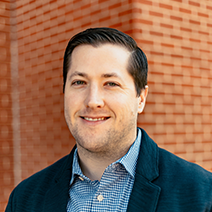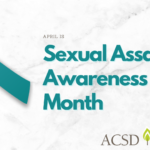The last few years have been particularly challenging for higher education professionals. Despite the trials encountered at institutions across the country, those working in student development have experienced varied struggles in particularly poignant ways. Our workplaces may have changed forever, we are losing colleagues amidst the “great resignation,” and we struggle to keep up with the rise in mental health issues.
One result of all this turmoil is that Christian student development professionals have—once again—been asked to “do more with less.” You have probably heard this maxim before in conversations about declining financial resources or working with downsized teams. Our students’ needs seem to be consistently increasing while our budgets seem to be continually shrinking. The tension we must work within between these two things can make our jobs exhausting. Whether due to COVID-19, enrollment shortfalls, or redirection of divisional funds toward academic pursuits, colleges and universities often ask student development functions to operate with flat or declining budgets year over year.
Operating within this reality is not easy, but understanding it further may help us find new solutions or see pathways to success in our respective areas. A deeper understanding of budget models and financial processes on our campus will not magically make it easier for us to “do more with less.” But from a recent article by Amelia Pavlik in the Student Affairs Today publication, it is clear that when we familiarize ourselves with budgeting best practices we lay some groundwork for boosting our department’s success.
Pavlik (2020) emphasizes, “Among the long list of administrative duties that come with the job, the budgeting process often ranks as the one responsibility for which student affairs professionals feel least equipped to manage” (p. 6). She recommends student development folks seek to understand their budget restrictions, review their budget regularly, know if revenue streams are fixed or variable, and have a three- to five-year plan that ties their budget to their strategic goals. Larry Moneta (2021), in his new book The Business of Student Affairs, echoes this sentiment in noting that “every staff member should have a basic understanding of the financial flows and challenges of the institution and the student affairs division” (p. 147).
Again, implementing these practices will not miraculously create more money, but they can give us a framework for understanding how money is received and spent in our departments. In turn, this can help us think creatively about where we might search for additional revenue (i.e., corporate partnerships, monetizing programs). Moneta (2021) emphasizes how thinking imaginatively about finding additional revenue can help “in times of fiscal austerity, when the institutional contribution to student affairs is vulnerable to reduction” (p. 3). Instead of trying to do more with less, could there be a way for us to do more with… more?
New revenue is not always easy to find, but there are opportunities existing in the programs we are already facilitating (that do not transfer the cost to students and families). Miller (2010) summarizes such efforts well: “In challenging economic times, student affairs administrators need to employ creative tactics seeking fiscal resources for their efforts to support student learning and student services” (p. 3).
Pavlik’s (2020) budgetary advice (and the encouragement to search for external revenue) is helpful, but as Christians we are called to think beyond the practical and aim for outcomes deeper than the results of departmental success. When we understand our fiscal position and our budgeting processes more thoroughly we can exercise better stewardship over our resources.
Stewardship is a concept derived distinctly from scripture (Mt 25:14-30) and is exemplified in a person who is entrusted with the resources of another—in gratitude for that opportunity—seeks to be a faithful manager (and maximizer!) of those resources. Whether you are operating with adequate fiscal resources right now or you are a department that is severely strapped for cash, you are called to steward your budget in student development well and in a way that honors and glorifies God.
Budgets are indeed practical tools for us to use, but from a Christ animated perspective they are spiritual tools to help us exercise faithful (1 Cor 4:2) and accountable (Luke 16:1-2; 10-12) stewardship of all the things we are entrusted to by God. Finances often seem to be something that we assume to be secular; we neglect asking where is God in this? As Christians in the field of student development we not only ought to honor and seek Him in our deep conversations with students or our formation-centered programming agendas, but in our budgeting practices as well.
Although writing specifically about church finances (not in the context of higher education), Valerie Brown (2000) elaborates on this idea of the common inability to connect faith and money. She emphasizes that although some will argue that money and faith do not belong in the same sentence, our “theology of money” is not an oxymoron. Instead, we should heed the words of scripture that offer insight on the posture of our hearts in relation to our various resources, such as Matthew 6:21 that reads “for where your treasure is, there your heart will be also.”
As long as our hearts are abiding in Christ to support, serve, educate, and develop our students, then when we engage our budgets, we are quite literally putting our money where our heart is. A Christ animated approach does not just free us to put our money where our mouth is, but allows our budget to be a tool we can use to glorify our King.
Being made in the image of God allows us to reflect His resourcefulness and innovation as stewards and representatives of his creation. Through the imago Dei we personify certain characteristics of our creator, including our creativity, that can be applied in our call to subdue the earth. Acting as redemptive agents, we ought to apply this creative thinking to our student development resources, and our search for new resources.
From a practical approach, for example, local sponsorships of a large-scale campus program might stretch your budget to get all the promotional t-shirts you need in exchange for a vendor’s brand printed on the back. Perhaps a new restaurant in close proximity to campus would be willing to donate food for a beginning-of-year orientation dinner as long as an informational flyer was put into every students’ welcome packet. Or, maybe it is a good time to form sound relationships with your development office so the next time a conversation starts with an influential alumni (who served as a dedicated student leader in your program) you can collaborate on stewarding a philanthropic gift from them for your area or a specific initiative. Further ideas can be explored in other recent publications such as this and this.
Although Pavlik’s (2020) advice regarding a budget is important (i.e., understand its restrictions, review it regularly, know the details about revenue streams, and tie it to your strategic plan), her recommendations fall short of additional perspectives from a Christ animated paradigm. Further, when we limit our creative capacity while searching for new fiscal resources, we are bypassing an opportunity to participate as image bearers in the full stewardship of our work.
Implementing a Christ animated paradigm might incur at least two additional best practices to Pavlik’s list: (1) recognize your budget as a tool to honor God, seeing it as an opportunity to practice biblical stewardship and even discipleship; and, (2) use a theological imagination to creatively and ethically seek new opportunities, such as additional revenue streams or reallocated funds to serve your people.
In sum, a Christ animated approach to our budgeting procedures in student development ought to embolden us to reflect on how we serve Him through such tools. Are we making decisions that faithfully steward the resources entrusted to us? Are we best utilizing our budgets to serve our brothers and sisters – our people – whether they be students or staff? Are we using our creativity and faith-informed imagination to think about how to extend or maximize our resources? Ultimately, as we do in many aspects of Christian student development, are we asking where is God in this about our budgets, as well?
Questions to Ponder in Your Next Staff Meeting
- How would you describe our institution’s relationship to money?
- Do you feel free to ask for things you need?
- Has our culture surrounding money/resources chilled your creativity and/or imagination?
- How does the concept of stewardship affect our student affairs practice? How should it?
- Where do you see alignment between our budgets and our Christian mission?
- Where do you see misalignment?
- What is one project you would love to develop if money were no object?
- Are there any current projects, initiatives, or programs you would prioritize below that idea?
- What would it look like to re-align our resources (or create new sources of income) to meet that goal?
References
Brown, V. K. (2000). Money and theology — It’s not an oxymoron (Publication No. n/a) [Doctoral dissertation, Case Western Reserve University]. Digital Case – Weatherhead School of Management Repository.
Miller, T. E. (2010). The context for development work in student affairs. In Thomas E. Miller (Ed.),Advancement work in student affairs: The challenges and strategies (New Directions for Student Services, no. 130, pp. 3-8). Jossey-Bass.
Moneta, L. (2021). The business of student affairs: Fundamental skills for student affairs professionals. NASPA – Student Affairs Administrators in Higher Education.
Pavlik, A. (2020). Familiarize yourself with budgeting best practices to boost your department’s success. Student Affairs Today, 22(12), 6-7.







